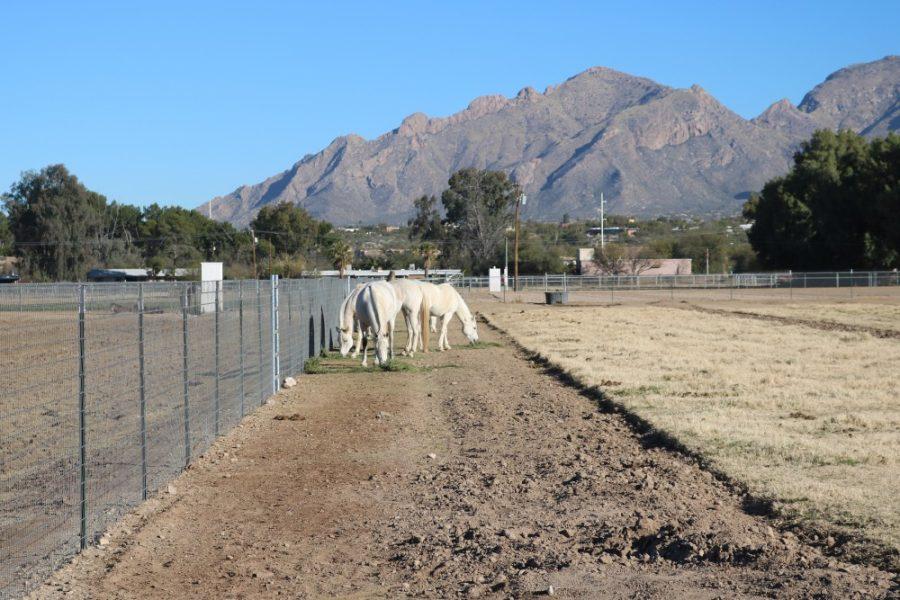Hundreds of universities have English departments, fine arts colleges and various STEM programs, but only the UA can boast that it offers a degree in the animal racing industry.
In the early 1970s a group of executives in the horse and greyhound racing business decided that they wanted more educated people running the unique sport, gambling and entertainment venues across the country, and began looking for a college to start their program. The UA took the plunge in 1974 and the Race Track Industry Program was born.
“There are hotel management schools and casino management schools … and that’s what we are, but for the horse racetrack industry,” said Doug Reed, director of the RTIP.
The program offers both Bachelor of Science and Master of Science degrees and features a mix of traditional four-year students, two-year transfer students and adults with a bachelor’s degree returning to school. The program teaches students to succeed in both the business and animal sides of the industry while offering two degree tracks.
Students in the major receive a foundation in all aspects of the industry.
Reed elaborated on how racetracks are such large, multifaceted ventures to run because they combine a sporting event with gambling, food and drink services and all the upkeep and security necessary for such a large facility.
Because of the betting aspect and the high importance of athlete and animal safety, RTIP students must take classes that specifically address the rules and regulations associated with horse racing. In addition, other required classes include horse breeding, care and training so that students get a well-rounded understanding of all facets of the business.
“What we want is to give a student a broad-based knowledge of the industry,” he said. “When they come out of here, they know a little bit about everything.”
Students take more in-depth classes and become specialized in one side of the industry based on which degree track they choose. The business path features courses on track management, while the equine management track requires classes in which students work with live horses.
The RTIP has access to horses at the UA Equine Center on Campbell Avenue and Roger Road. Students help raise, train and sell the horses in different equine courses. The opportunities available for the students to further their education and experience don’t stop there though. All the professors and faculty in the RTIP pride themselves on possessing real experience in the business and sharing those experiences with students.
“I came here because I was interested in horse racing and all things horses when I was in high school,” said Wendy Davis, associate coordinator of the program and primary student adviser, who has owned a training farm, worked in animal health and is still actively involved in the racing and horse showing industries.
Reed said he fell in love with racing while attending the Maryland State Fair as a child. When he first tried to break into the industry, much of it was locked up by family ties and a “who-you-know” mentality.
Reed started working in maintenance at the same Maryland fair track and worked his way up the ranks by working as a racing official, secretary and multi-facility operator before coming to the UA.
The faculty also puts together events and holds an annual international conference of industry professionals to assist students with networking opportunities. If the UA alumni are any indication, the program is overwhelmingly successful at finding employment for its students.
Among the UA RTIP alumni is Bob Baffert, the famous racehorse trainer known for his training of American Pharaoh, the first Triple Crown winner since 1978.
Other program alumni include track owners and operators around the world, presidents and vice presidents of racing organizations and trainers and breeders abound. The list is quite impressive and supported by the multitude of trophies in the Marshall Building where the program is headquartered.
Who knows, maybe the trainer of the next Triple Crown winner is somewhere on campus, studying for their next exam.
Follow Victoria Pereira on Twitter









